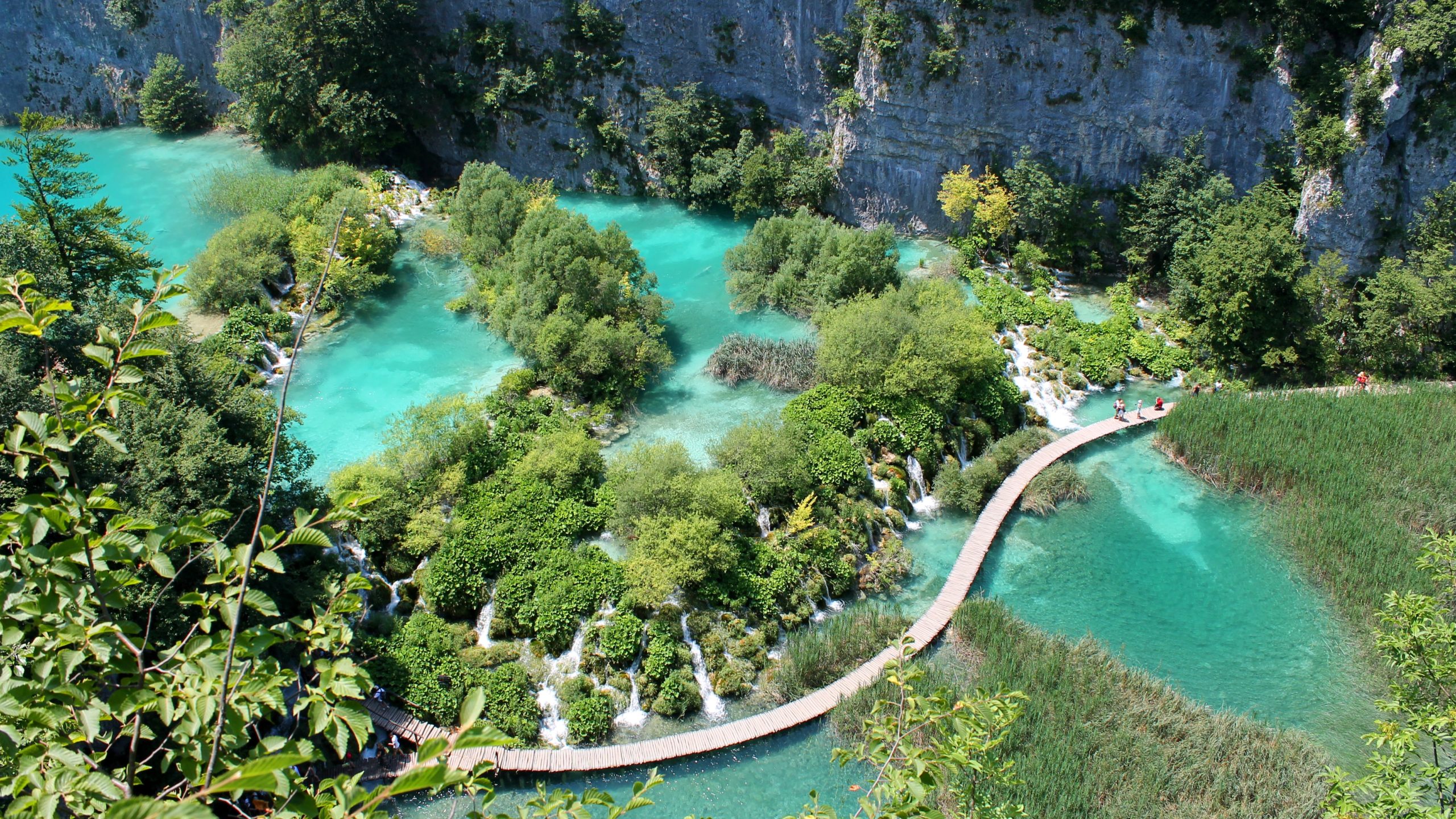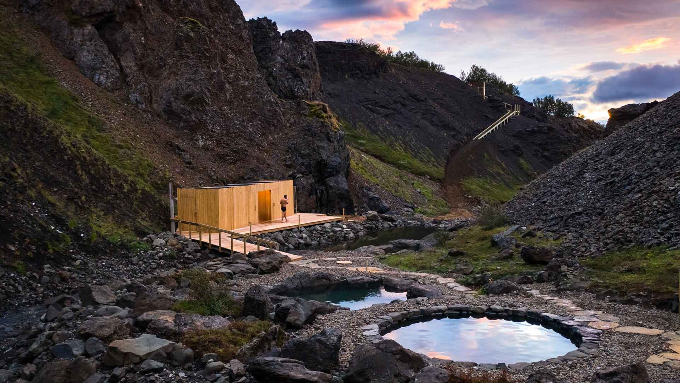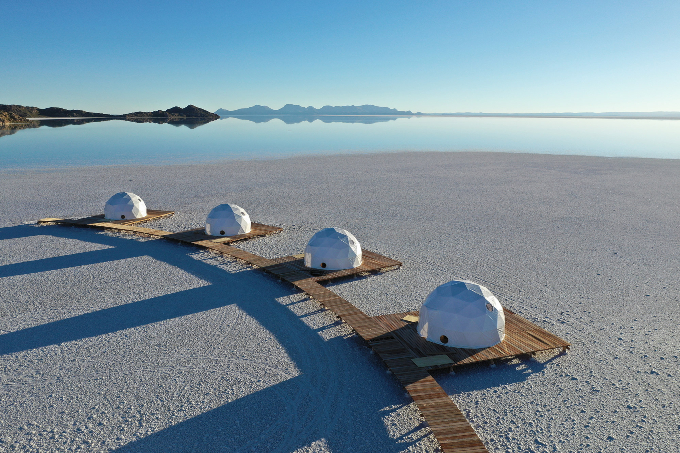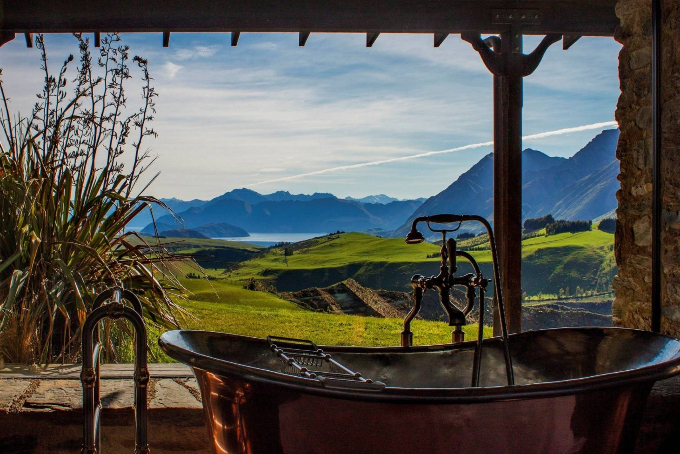
Travel /
A recent report by global market research company Euromonitor International has ranked the top 30 sustainable countries in the world, based on the analysis of 99 countries, taking into account environmental, social and economic sustainability, as well as the demand for sustainable tourism.
Not only this, but the report also highlights that that over 2/3 of global consumers actively seek to and want to have a positive impact on the environment through their daily actions in 2021. This, combined with the increase in searches for regenerative travel and slow travel, is incredibly uplifting news.
European countries dominate the list, with Sweden coming out on top due to its engagement with sustainability and incredible progress toward sustainable travel. Finland, Austria, Estonia and Norway (in that order) followed close behind Sweden, and are leading the charge when it comes to green holiday destinations. What’s great to see is that there is a clear change in mind-set to resist returning to a volume-driven travel and tourism model. Instead, stakeholders are rallying together to ‘build back better’ through value creation from sustainable tourism.
Coming out on top in the report, Sweden made a name for itself in the world of sustainable travel by pioneering the flight shaming movement. Today, the country works hard to prove that sustainability can enhance the travel experience and focuses on promoting sustainable rural and regional tourism in core cities. According to the report, ‘the country has focused on generating higher levels of value derived from tourism which has helped its economy, environment and society, leading to improvements across many pillars. The government established the framework critical to Sweden’s success to achieve the 17 SDGs, especially regarding climate action, conserving biodiversity in the Arctic and moving to a carbon-free circular economy.’ The country leads in landfill and recycling treatment, and is known for its use of renewable energy sources and low carbon dioxide emissions.
(Stay) Tree Hotel, Harads. The popular landscape hotel where you can stay in the trees and be more immersed in nature than ever, Tree Hotel is the epitome of eco luxury. It’s a brilliant place to visit to understand more about ecological values.


With Norwegians living so close to nature, there’s a real intrinsic knowledge and passion for sustainability across the country. In fact, they take an active role in conserving their environment, engaging with it and they know that this is what will allow it to be there for future generations. It’s for this reason that it’s known as something of an eco-travel trailblazer. The city forest of Oslo is just one example of how the country is leading the way when it comes to championing nature, conservation and sustainability. The vast area of forest known as Oslomarka surrounds the Norwegian capital and is fiercely protected from development. The report states that, ‘a thriving natural environment is one of the main prerequisites for a successful and sustainable tourism offer,’ something that Norway delivers incredibly well on.
(stay) Svart. The world’s first energy-positive off-grid destination is arriving in Norway next year. Okay, so you might not be able to stay there just yet, but come 2022 and this will be the place to book. We wrote more about it over here.
Iceland consistently ranks highly in the social sustainability pillar. This is largely due to the fact that the Icelandic Tourist Board has been pushing a strong framework to encourage companies to become more sustainable and socially responsible, making it, in turn, a leader in ecotourism as a concept. Ecotourism aims to leave the country in just as good a condition as when a traveller arrives, as well as acting as inspiration for the visitor to bolster their sustainability efforts and knowledge. Eco-tours are a huge part of the Iceland travel experience, and the country is brilliant at ensuring these support sustainability efforts in the long-term. Hidden Iceland is a good example of a tour provider offering sustainability-themed small-group tours. The company worked with Vakinn, the quality and environmental certification body for the Icelandic Tourism Board, to ensure the tours meet the highest ethical and environmental standards, and follows a policy of 100% carbon neutrality, leveraging sustainable tourism practices. The Icelandic Pledge asks visitors to promise to respect nature during their stay. In addition, to compensate for over-tourism, the Icelandic government has set out limitations regarding the busiest areas of the country.
(stay) Hotel Husafell. These hip quarters are situated on a former farm and have outdoor pools that are filled with geothermal water. The eco-luxury resort is on the edge of Iceland’s central highlands.


Sustainable tourism is a concept that has become much more popular in Croatia over the last few years. It’s hard not to be impressed by the countries beauty, air quality, cleanliness and unspoiled landscapes, and it’s integral that the travel industry within the country works to protect this on a daily basis. In 2006, Croatia’s Ministry for Environmental Protection introduced a policy that has eliminated virtually 100 percent of glass and plastic-bottle litter in the country. Under the plan, people can trade bottles for money when they return them to certain supermarkets and the results have been incredible. According to Frommers, ‘Croatia estimates that more than two billion bottles have been collected since the return policy went into effect—that’s virtually every bottle sold in the country.’
(stay) Maslina Resort, Hvar. One of the most exciting sustainable hotel openings in Europe this year, the Maslina Resort centers itself around the concept of mindful luxury. Their philosophy is reflected in every detail of the guest experience, from non-intrusive architecture, reforesting efforts, organic cuisine and sustainable excursions.
Portugal might have had a slower entrance into the travel sustainability sphere, but nowadays, it’s doing pretty well in highlighting the importance of protected nature and ecotourism. With many travel companies focusing on regenerative travel and regenerative agriculture across the country, Portugal is placing a huge emphasis on teaching visitors about the importance of nature in our sustainability journeys. Responsible Travel says: ‘Rural tourism is proving a vital tool for responsible tourism in Portugal, helping halt a migration which had threatened the future of many communities across swathes of southern and central Portugal. Farms stays, country inns and restaurants are vitally boosting income hosting and feeding visitors who, thanks to the wonderful climate, are increasingly visiting year round.’ In recent years, the government has also declared some of Portugal’s coastal areas as protected landscapes, rescuing them from developers and further overcrowding.
(stay) Villa Epicurea, Sesimbra. This stylish and earthy eco retreat is situated just outside of Lisbon and focuses on immersing guests within nature and sharing the lessons of the founder’s eco philosophy. All meals are prepared with organic ingredients, mostly bought from local producers and the site features an ecologically sustainable infinity swimming pool and yoga dome.


It’s all about responsible tourism in Bolivia. As a country that was shunned by many others for its socialist politics, it’s taken decades to build a tourism industry that works for both the environment and the local community. Today, just as Responsible Travel highlights, few visitors will return home from a journey to Bolivia unaware of the poverty, unemployment and political protests – reading up on responsible tourism is the best way to understand and to ensure you are not contributing to any of these issues. Bolivia’s ongoing improvement in sustainable tourism has increased the value that tourism brings. As the report states: ‘the country takes a different approach to conversing nature, biodiversity and local communities. The country recognises Rights for Nature in its constitution, with the right to exist, flourish and regenerate, in addition to the Galapagos and other prime biodiversity areas which helped position the country as a nature and adventure haven.’
(stay) Kachi Lodge, Saral de Uyuni. The first permanent lodge of its kind in the famous Salt Flats of Bolivia, Kachi Lodge is a contemporary, solar-powered glamping resort. You’ll find twinkling lanterns lighting your way and the eco restaurant serves as a foundation to help under-privileged youths.
Although it didn’t sit within the top 20 countries on the list, New Zealand came in as one of the most sustainable travel destinations due to its incredibly healthy tourism market and its commitments to protecting the longevity of the country. In fact, according the report, ‘New Zealand is exemplary in resilience due to its robust domestic tourism market and high levels of spend per trip and high levels of trip frequency per capita, making them leaders in regenerative tourism.’ It’s easy to see how a country that is so naturally connected with its beauty, environment and diverse surroundings would end up being one of the most sustainable countries in the world. Another big part of New Zealand’s sustainability effort is the way in which it protects itself from threats to its biodiversity. The Euro Monitor Report highlights that ‘risks to biodiversity are an existential threat to a sustainable tourism model. According to the World Wildlife Fund (WWF), there has been a decline of 68% in wildlife populations over the past 50 years. Therefore, governments must take responsibility to protect the planet and its species.’
(stay) Mahu Whenua, Wanaka It’s all about healing the land while staying in absolute luxury at Mahu Whenua in New Zealand’s south island. The rural haven has replanted hundreds of trees and encourages native birds and biodiversity back to the area.
